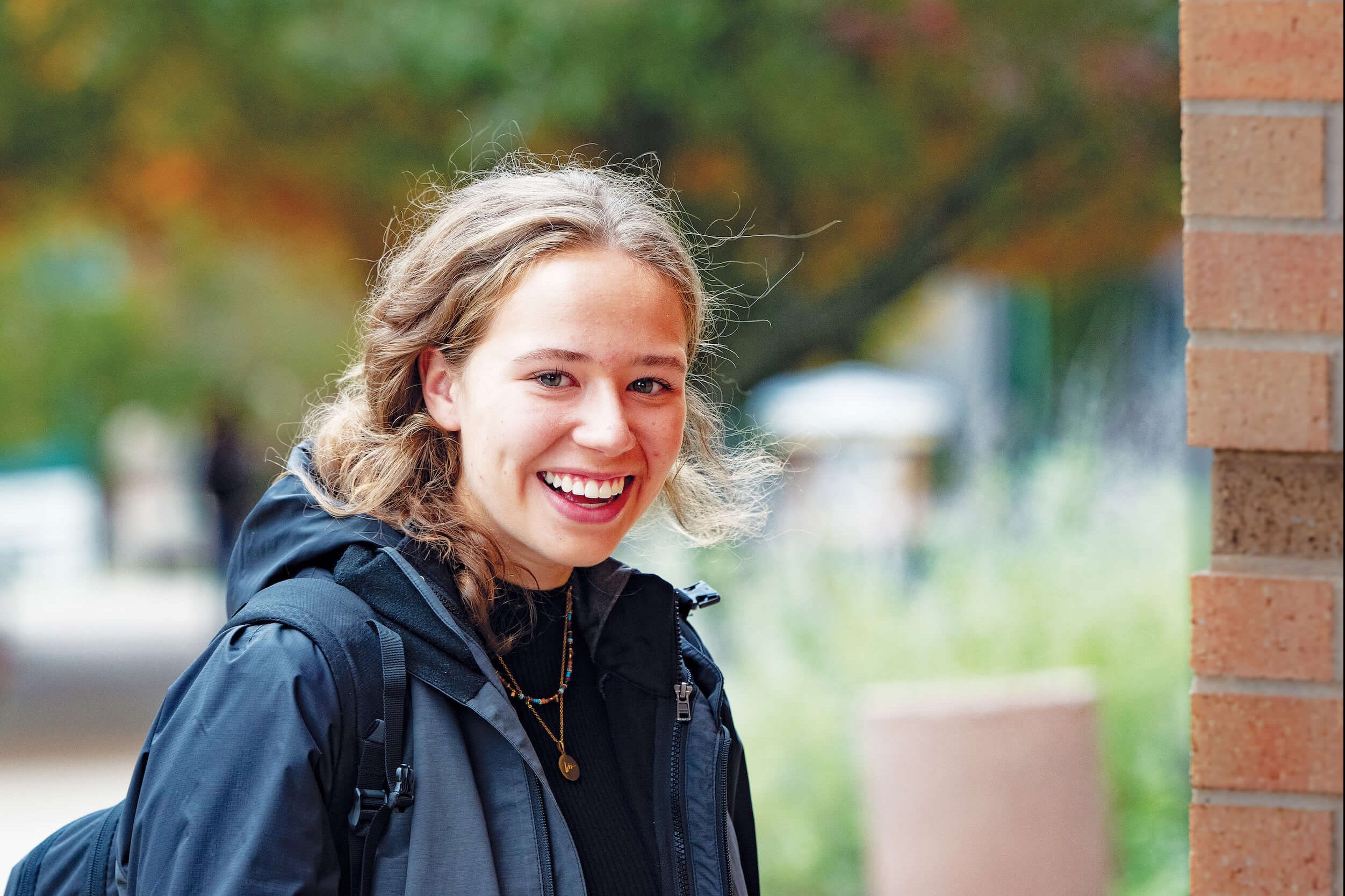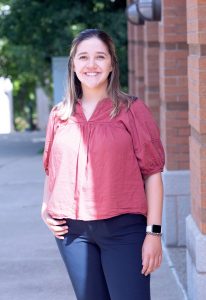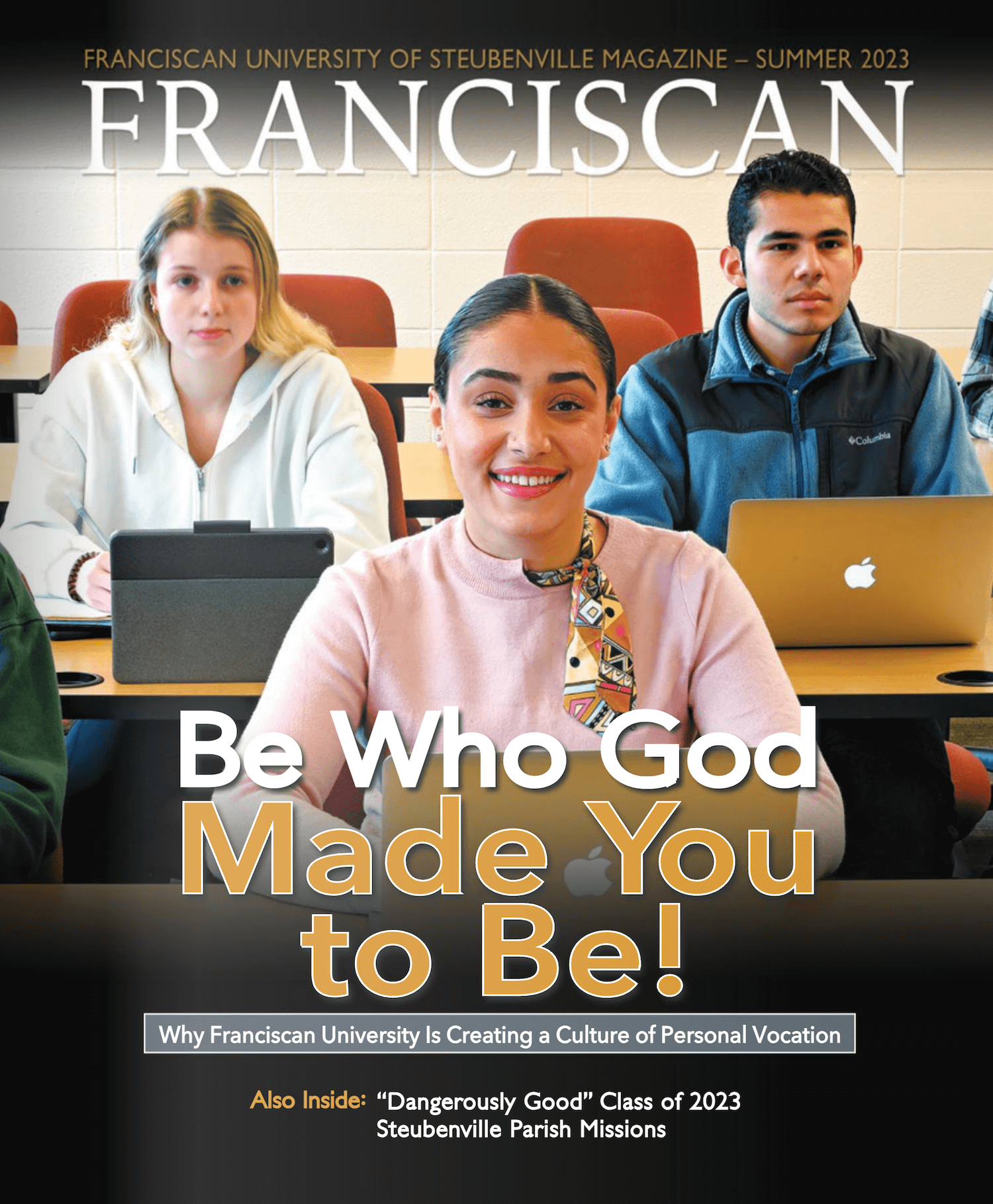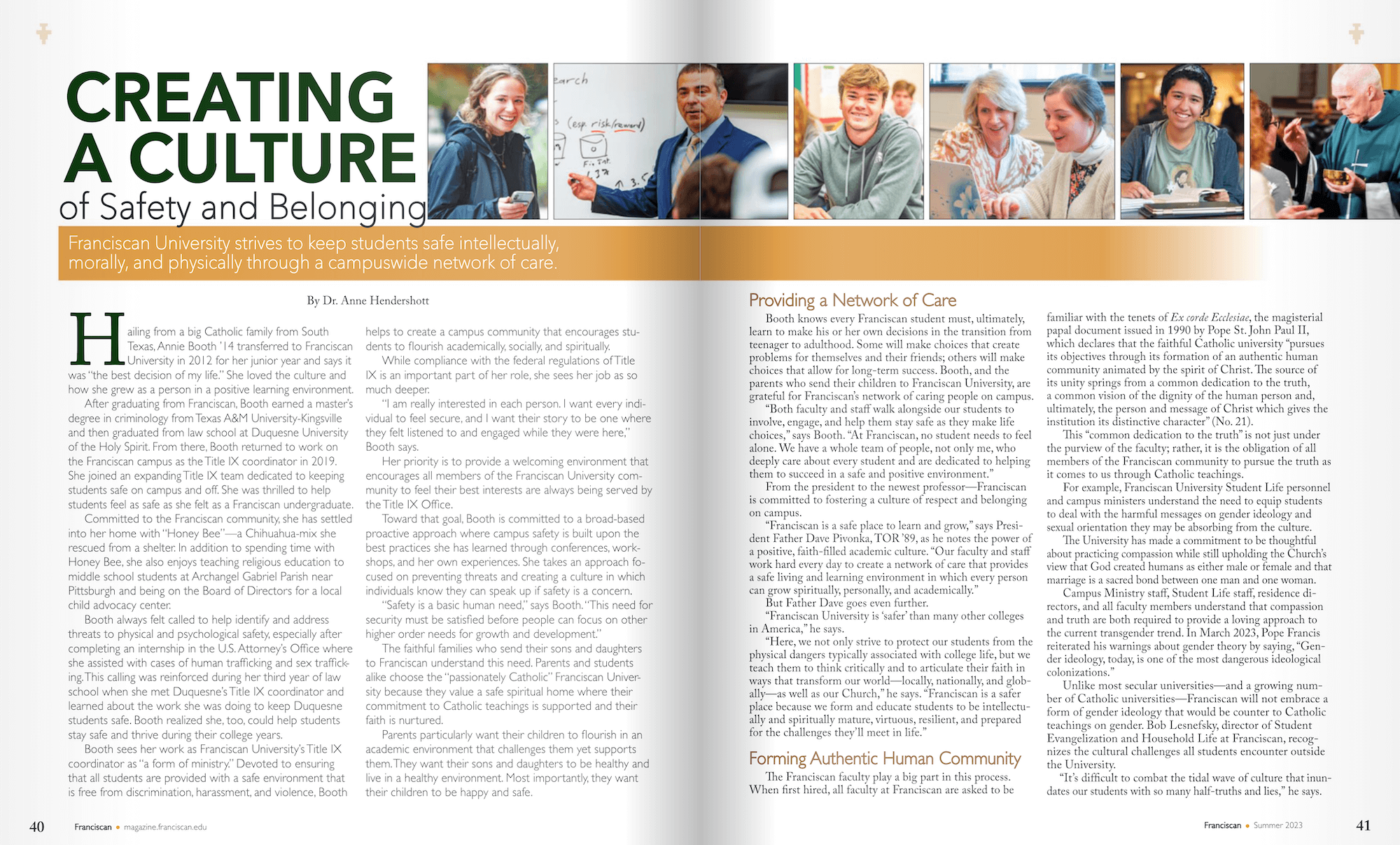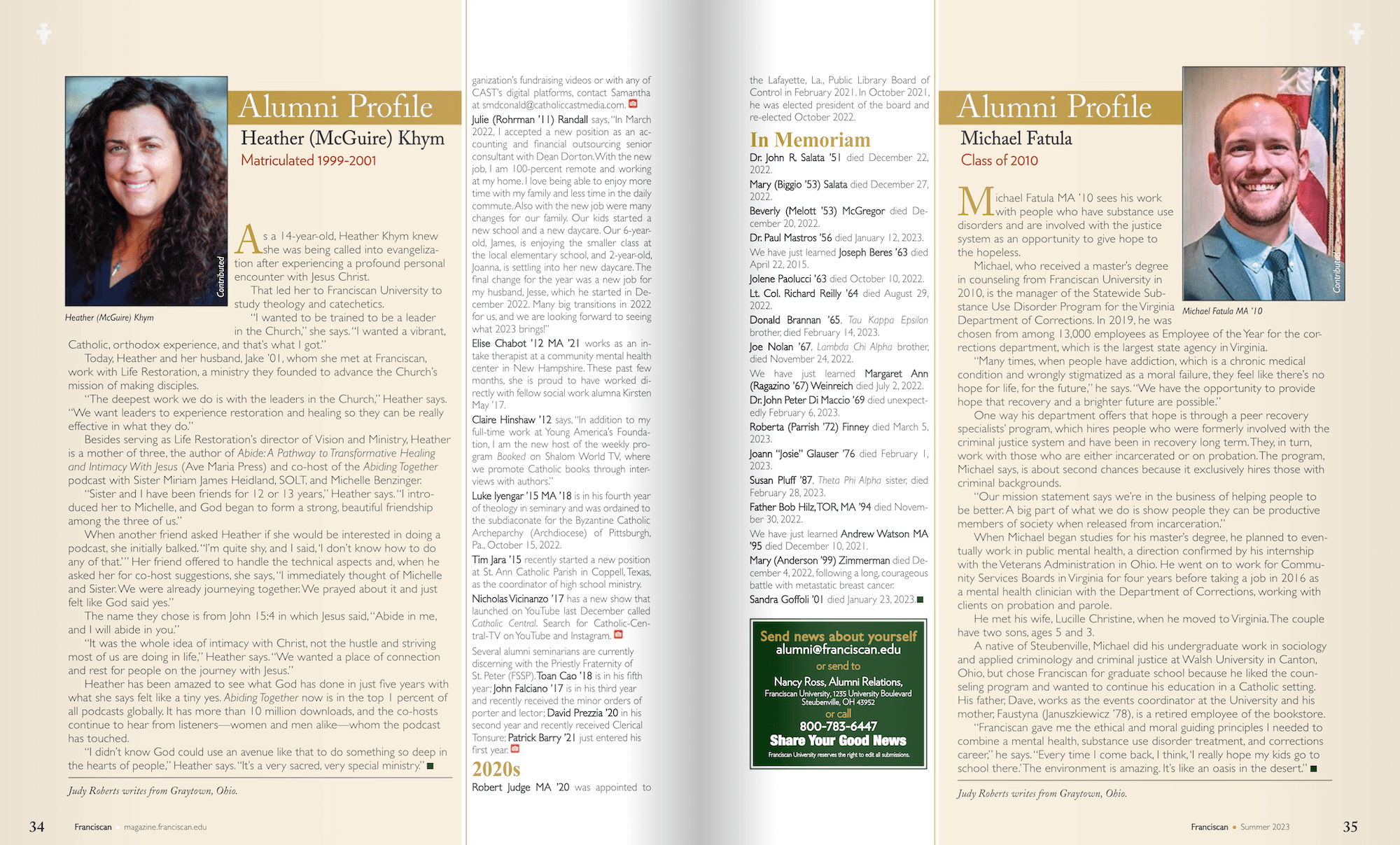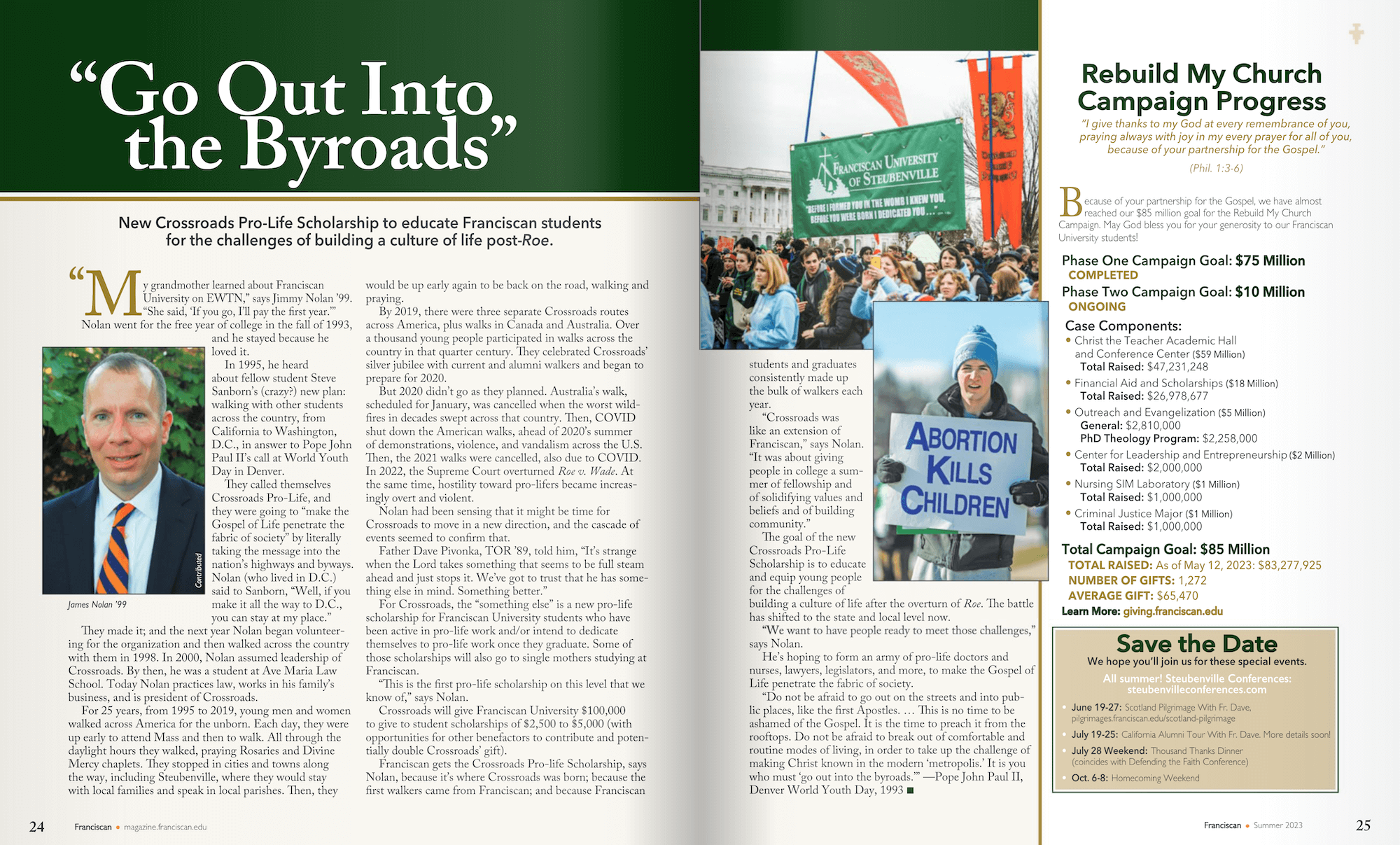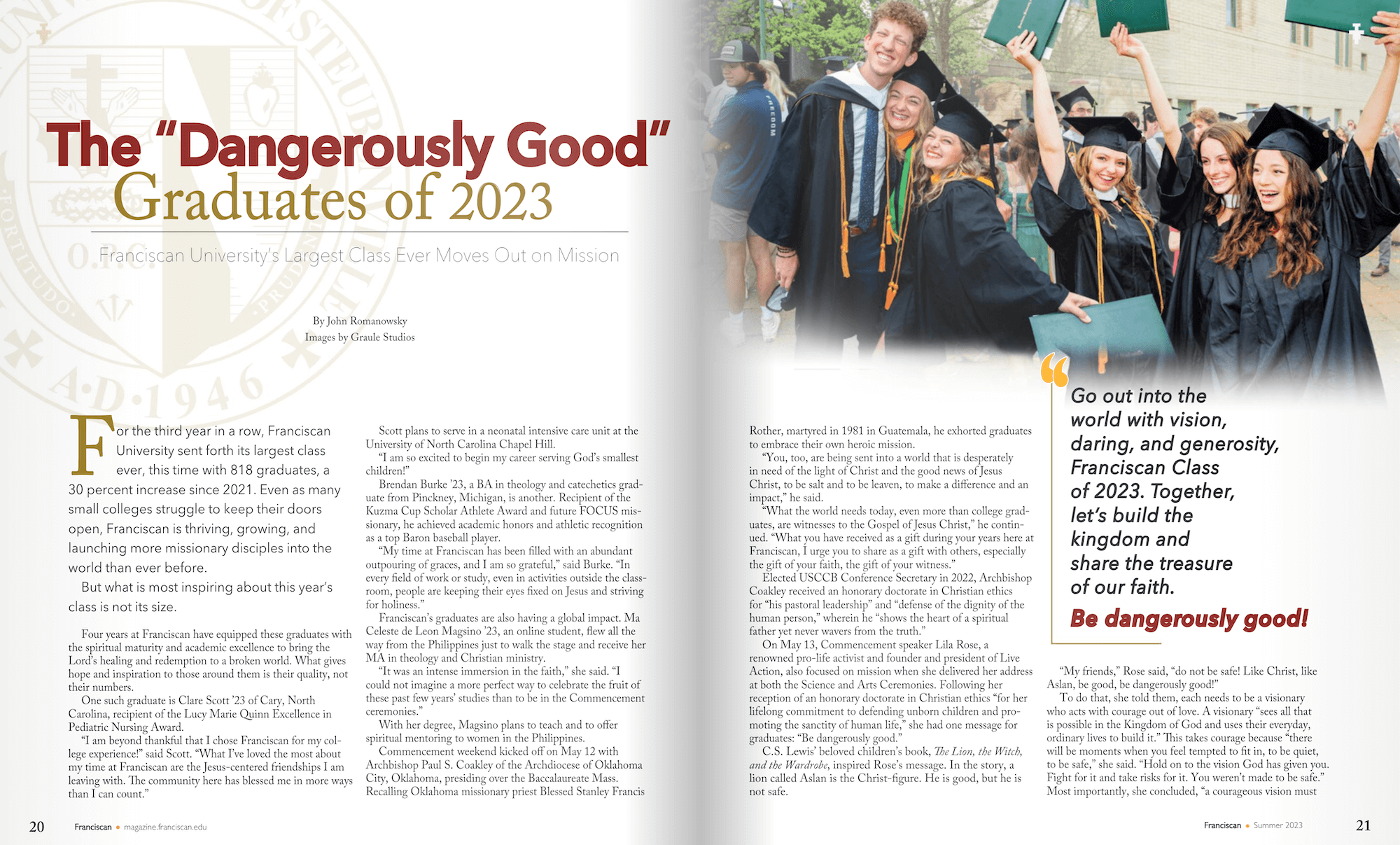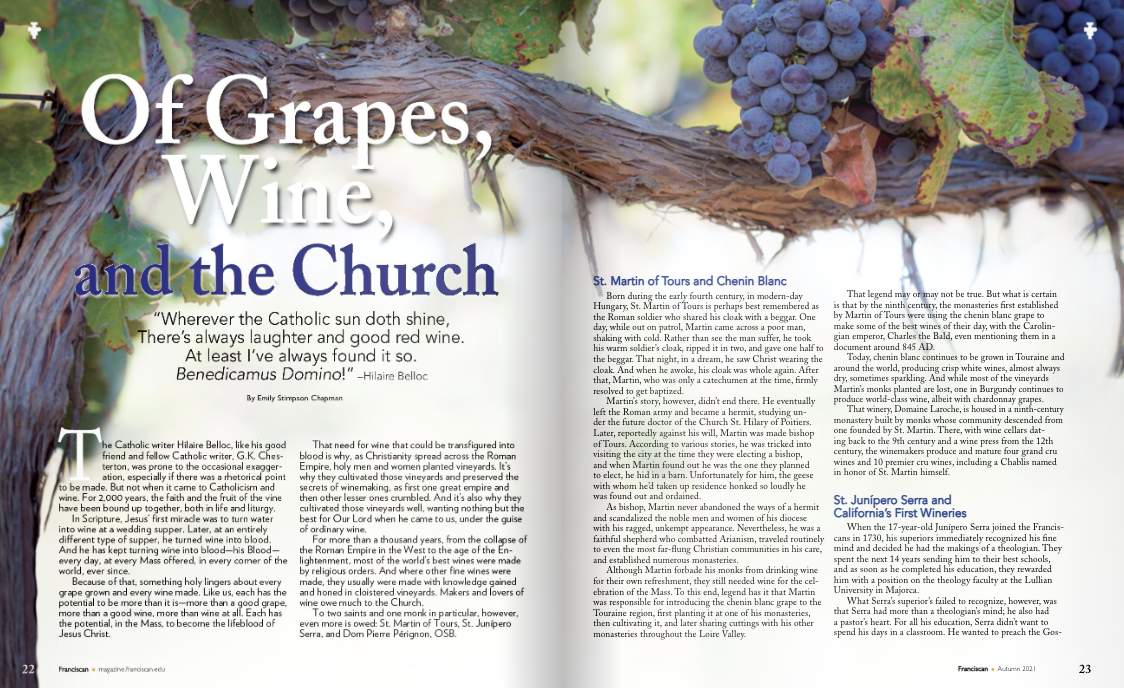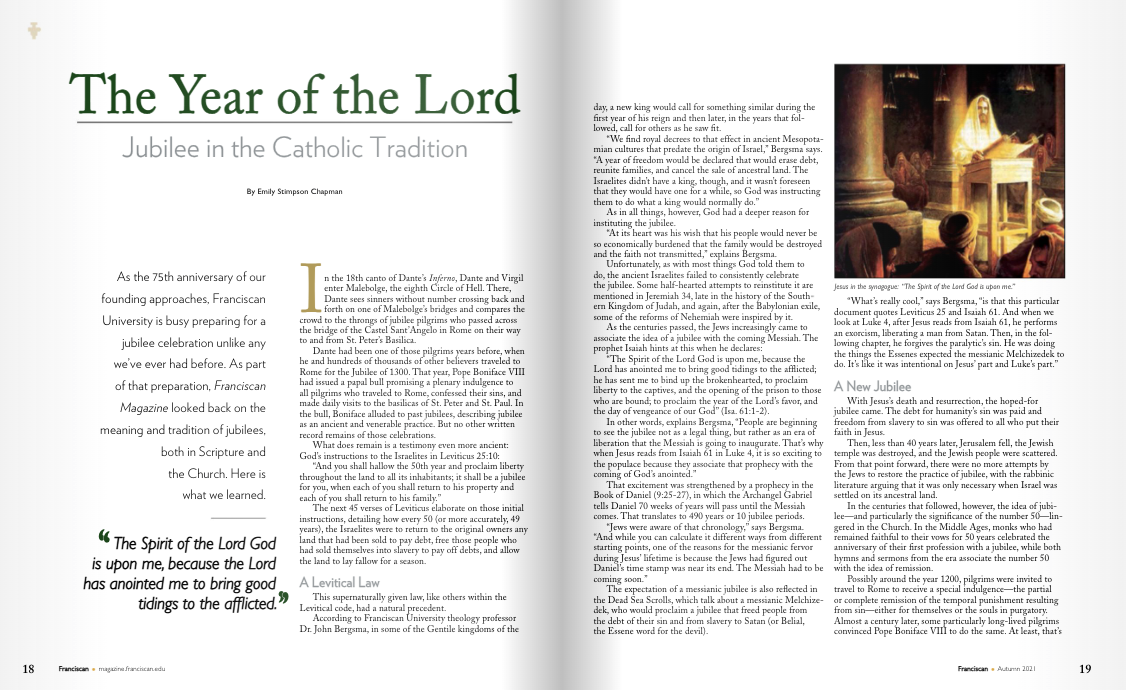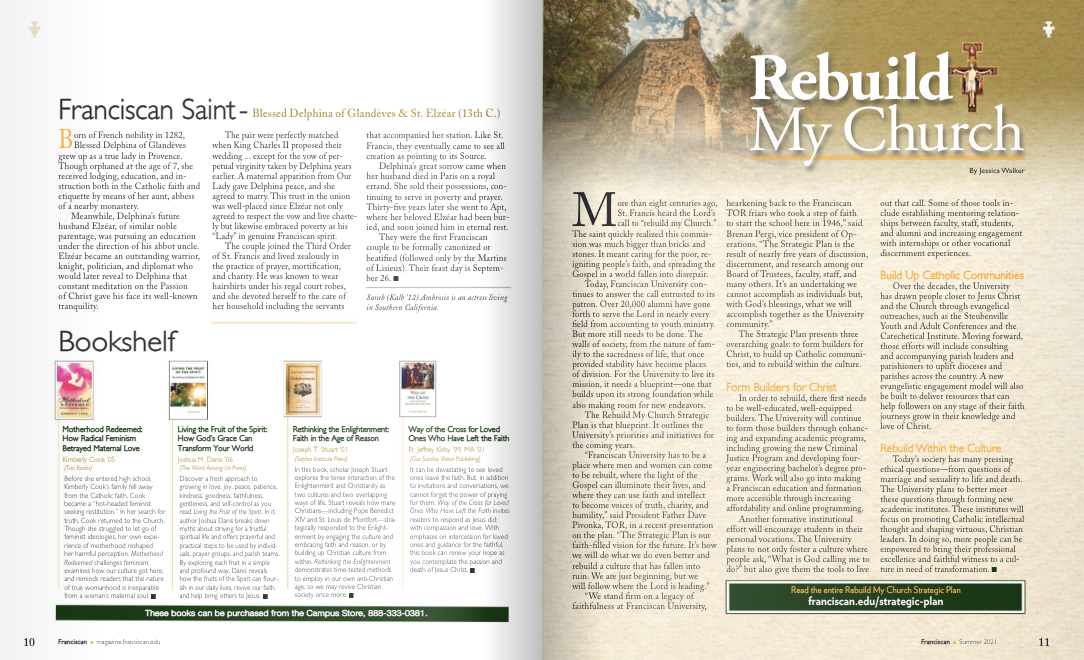Hailing from a big Catholic family from South Texas, Annie Booth ’14 transferred to Franciscan University in 2012 for her junior year and says it was “the best decision of my life.” She loved the culture and how she grew as a person in a positive learning environment.
After graduating from Franciscan, Booth earned a master’s degree in criminology from Texas A&M University-Kingsville and then graduated from law school at Duquesne University of the Holy Spirit. From there, Booth returned to work on the Franciscan campus as the Title IX coordinator in 2019. She joined an expanding Title IX team dedicated to keeping students safe on campus and off. She was thrilled to help students feel as safe as she felt as a Franciscan undergraduate.
Committed to the Franciscan community, she has settled into her home with “Honey Bee”—a Chihuahua-mix she rescued from a shelter. In addition to spending time with Honey Bee, she also enjoys teaching religious education to middle school students at Archangel Gabriel Parish near Pittsburgh and being on the Board of Directors for a local child advocacy center.
Booth always felt called to help identify and address threats to physical and psychological safety, especially after completing an internship in the U.S. Attorney’s Office where she assisted with cases of human trafficking and sex trafficking. This calling was reinforced during her third year of law school when she met Duquesne’s Title IX coordinator and learned about the work she was doing to keep Duquesne students safe. Booth realized she, too, could help students stay safe and thrive during their college years.
“Our faculty and staff work hard every day to create a network of care that provides a safe living and learning environment in which every person can grow spiritually, personally, and academically.”
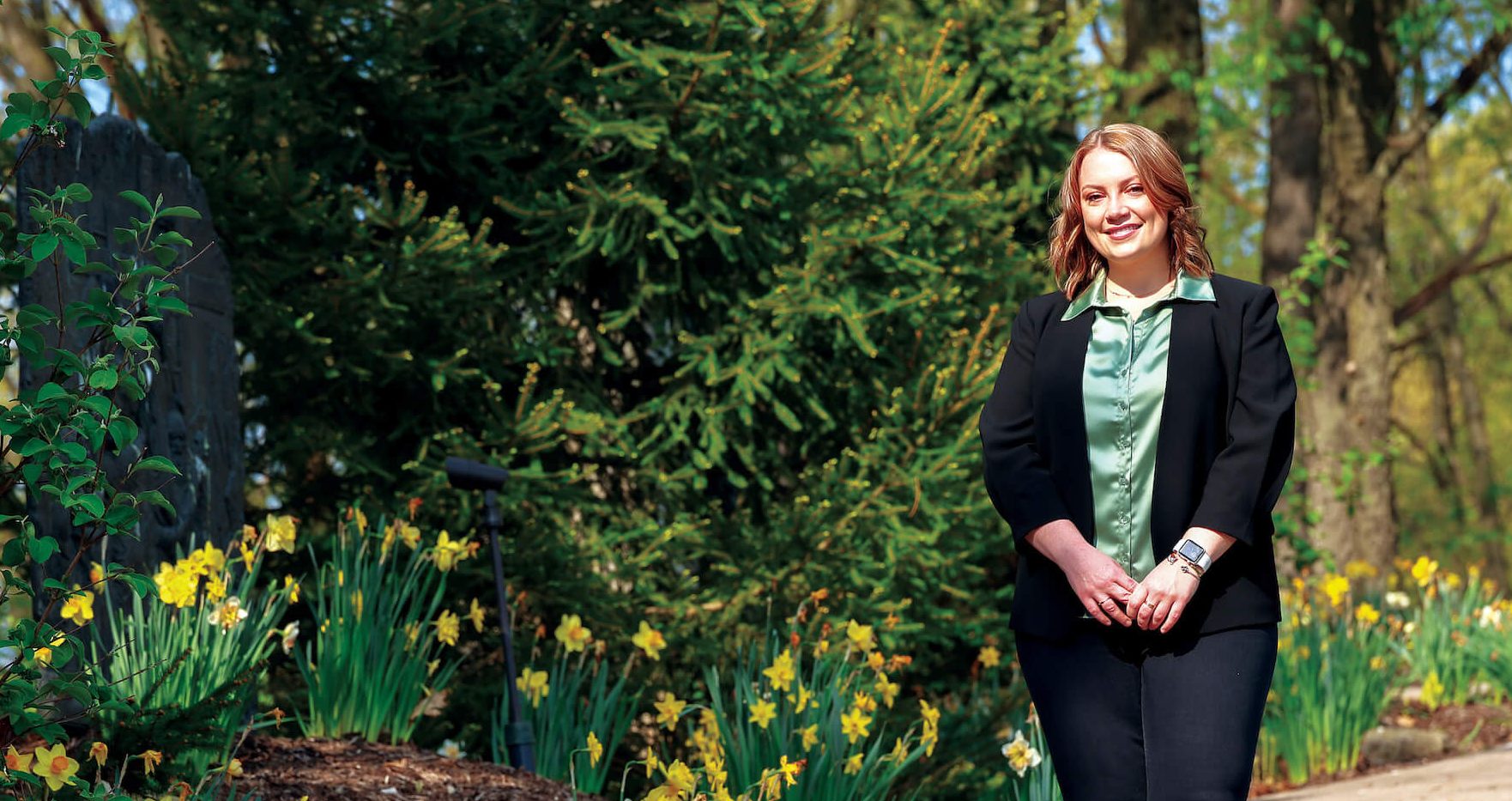
Annie Booth ’14, Title IX/EEO Coordinator
Booth sees her work as Franciscan University’s Title IX coordinator as “a form of ministry.” Devoted to ensuring that all students are provided with a safe environment that is free from discrimination, harassment, and violence, Booth helps to create a campus community that encourages students to flourish academically, socially, and spiritually.
While compliance with the federal regulations of Title IX is an important part of her role, she sees her job as so much deeper.
“I am really interested in each person. I want every individual to feel secure, and I want their story to be one where they felt listened to and engaged while they were here,” Booth says.
Her priority is to provide a welcoming environment that encourages all members of the Franciscan University community to feel their best interests are always being served by the Title IX Office.
Toward that goal, Booth is committed to a broad-based proactive approach where campus safety is built upon the best practices she has learned through conferences, workshops, and her own experiences. She takes an approach focused on preventing threats and creating a culture in which individuals know they can speak up if safety is a concern.
“Safety is a basic human need,” says Booth. “This need for security must be satisfied before people can focus on other higher order needs for growth and development.”
The faithful families who send their sons and daughters to Franciscan understand this need. Parents and students alike choose the “passionately Catholic” Franciscan University because they value a safe spiritual home where their commitment to Catholic teachings is supported and their faith is nurtured.
Parents particularly want their children to flourish in an academic environment that challenges them yet supports them. They want their sons and daughters to be healthy and live in a healthy environment. Most importantly, they want their children to be happy and safe.
Providing a Network of Care
Booth knows every Franciscan student must, ultimately, learn to make his or her own decisions in the transition from teenager to adulthood. Some will make choices that create problems for themselves and their friends; others will make choices that allow for long-term success. Booth, and the parents who send their children to Franciscan University, are grateful for Franciscan’s network of caring people on campus.
“Both faculty and staff walk alongside our students to involve, engage, and help them stay safe as they make life choices,” says Booth. “At Franciscan, no student needs to feel alone. We have a whole team of people, not only me, who deeply care about every student and are dedicated to helping them to succeed in a safe and positive environment.”
From the president to the newest professor—Franciscan is committed to fostering a culture of respect and belonging on campus.
“Franciscan is a safe place to learn and grow,” says President Father Dave Pivonka, TOR ’89, as he notes the power of a positive, faith-filled academic culture. “Our faculty and staff work hard every day to create a network of care that provides a safe living and learning environment in which every person can grow spiritually, personally, and academically.”
But Father Dave goes even further.
“Franciscan University is ‘safer’ than many other colleges in America,” he says.
“Here, we not only strive to protect our students from the physical dangers typically associated with college life, but we teach them to think critically and to articulate their faith in ways that transform our world—locally, nationally, and globally—as well as our Church,” he says. “Franciscan is a safer place because we form and educate students to be intellectually and spiritually mature, virtuous, resilient, and prepared for the challenges they’ll meet in life.”



